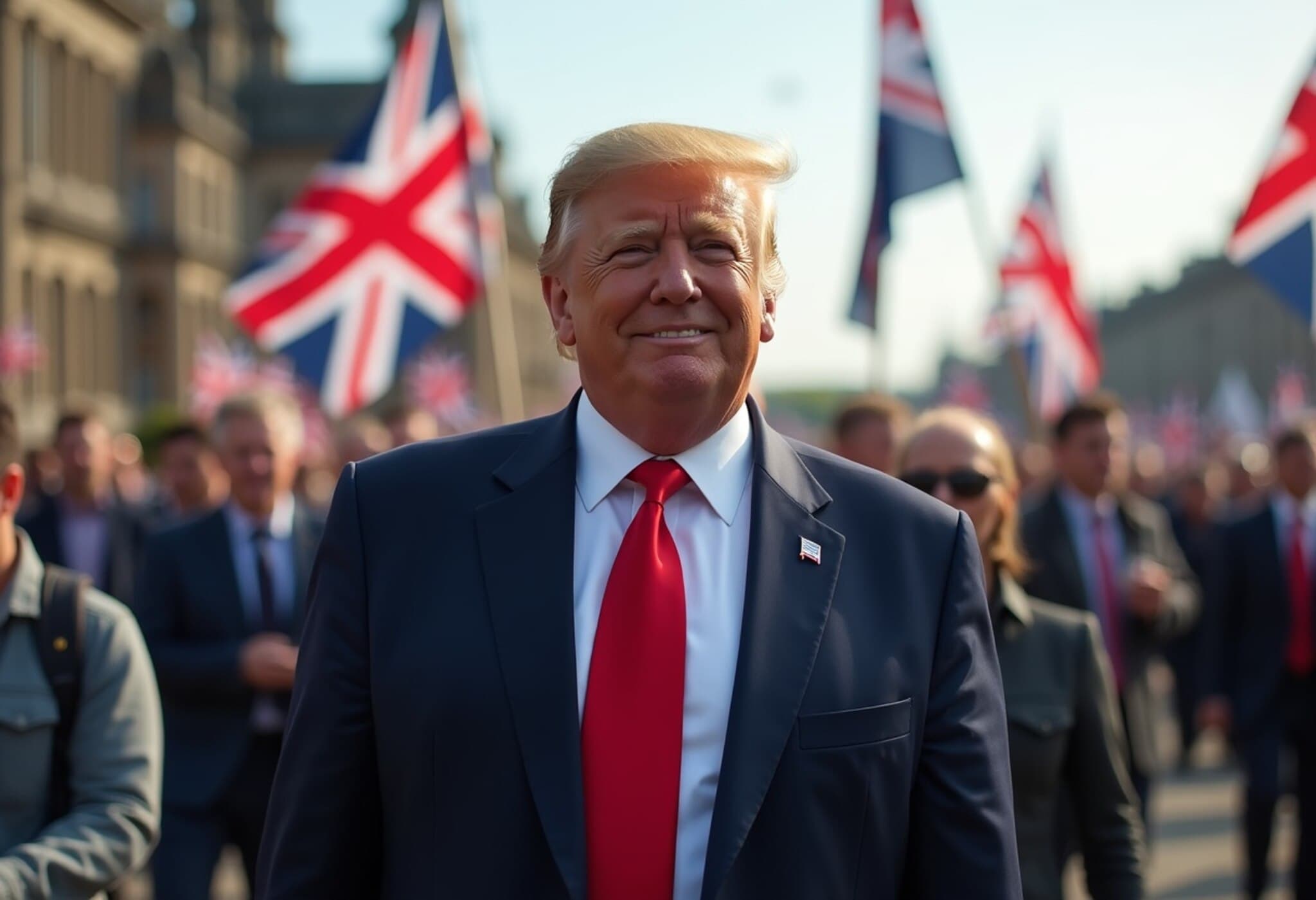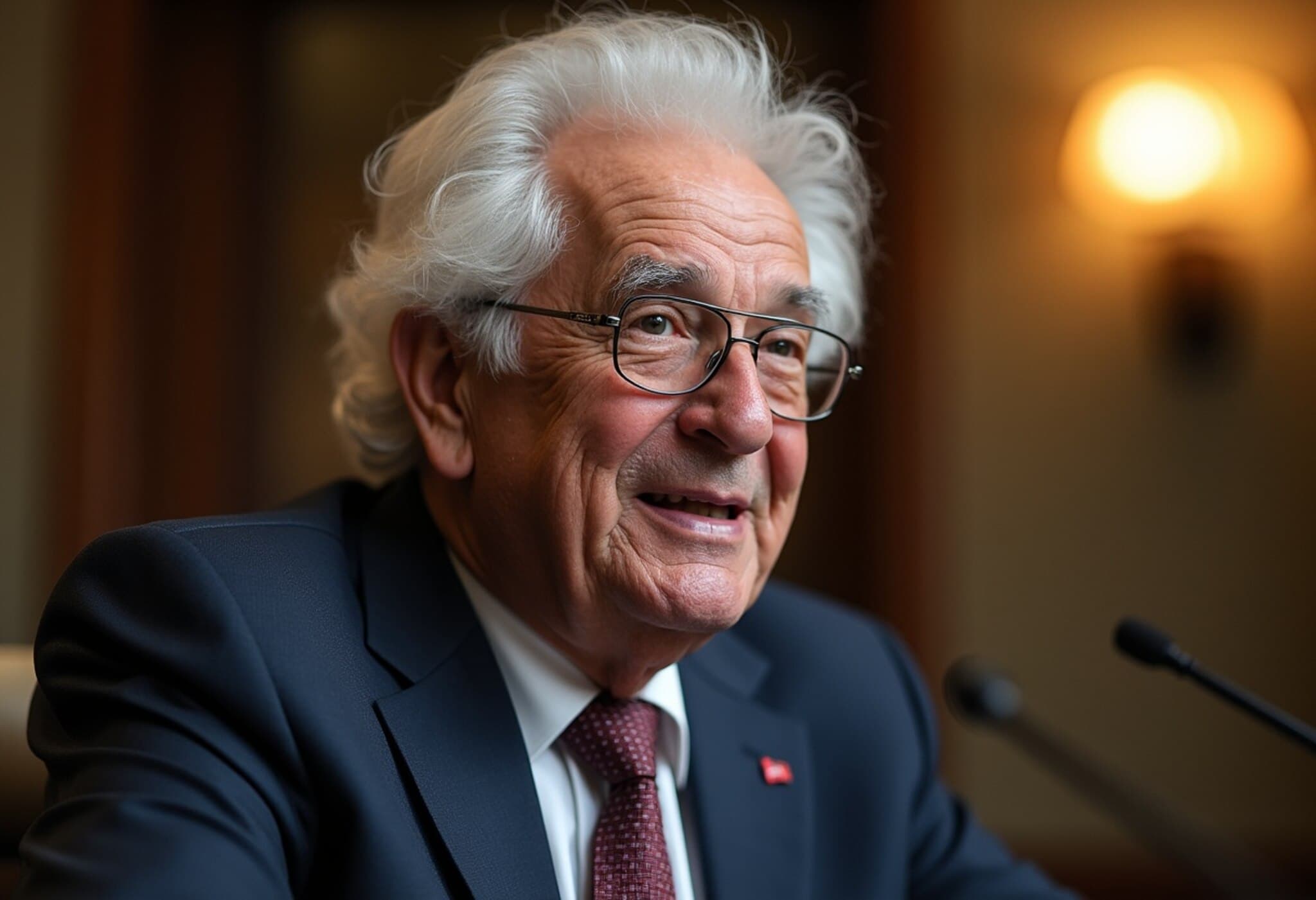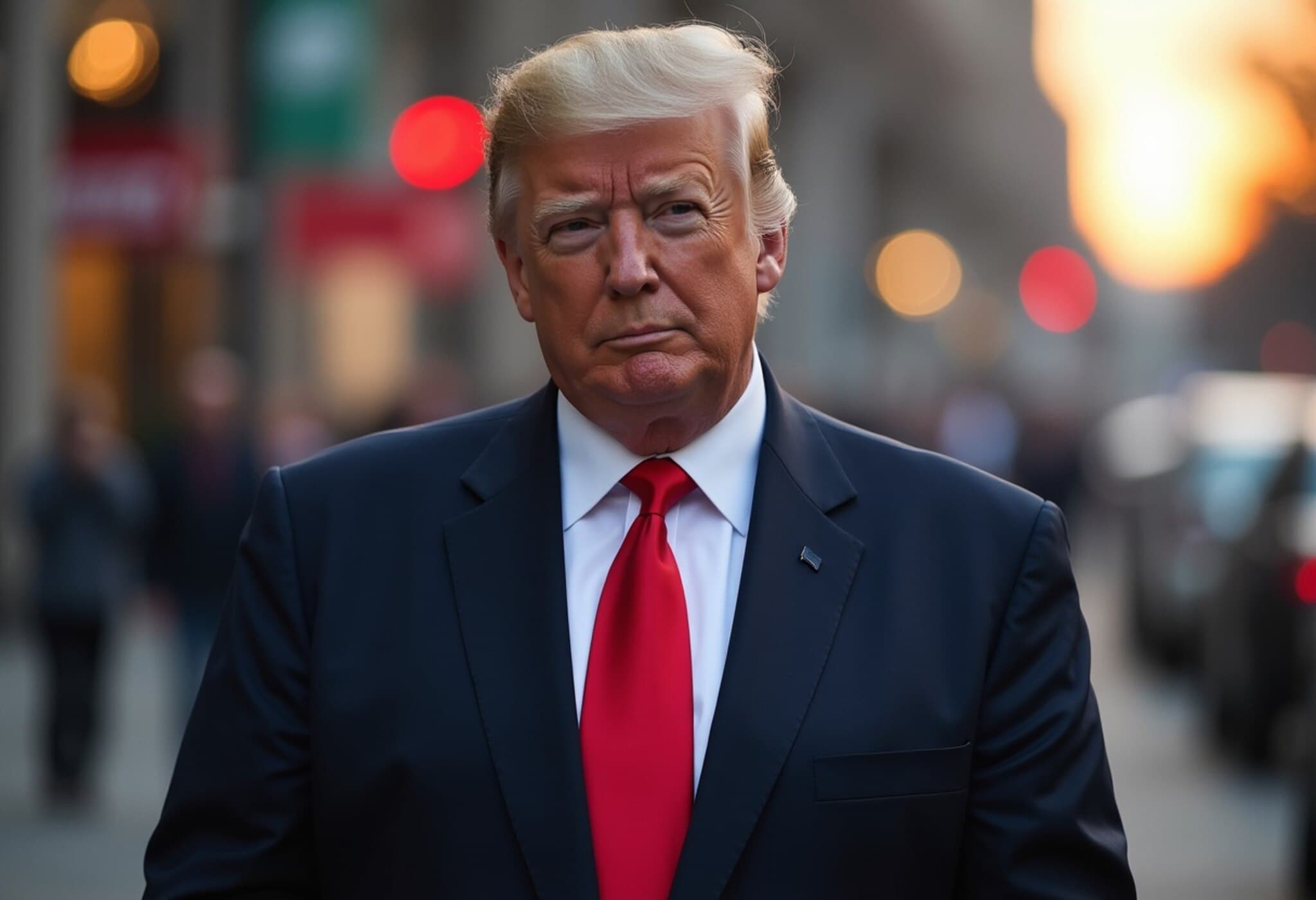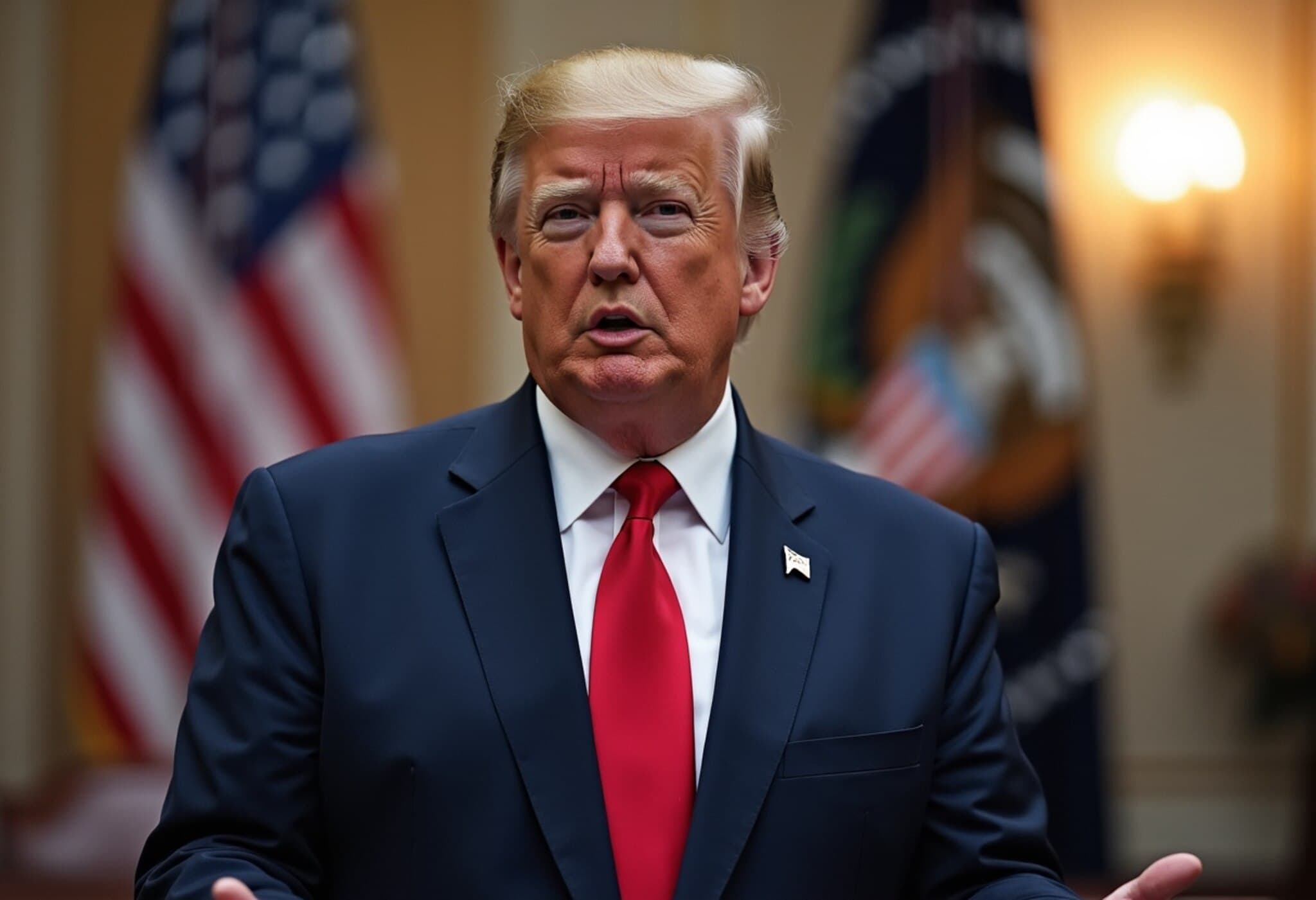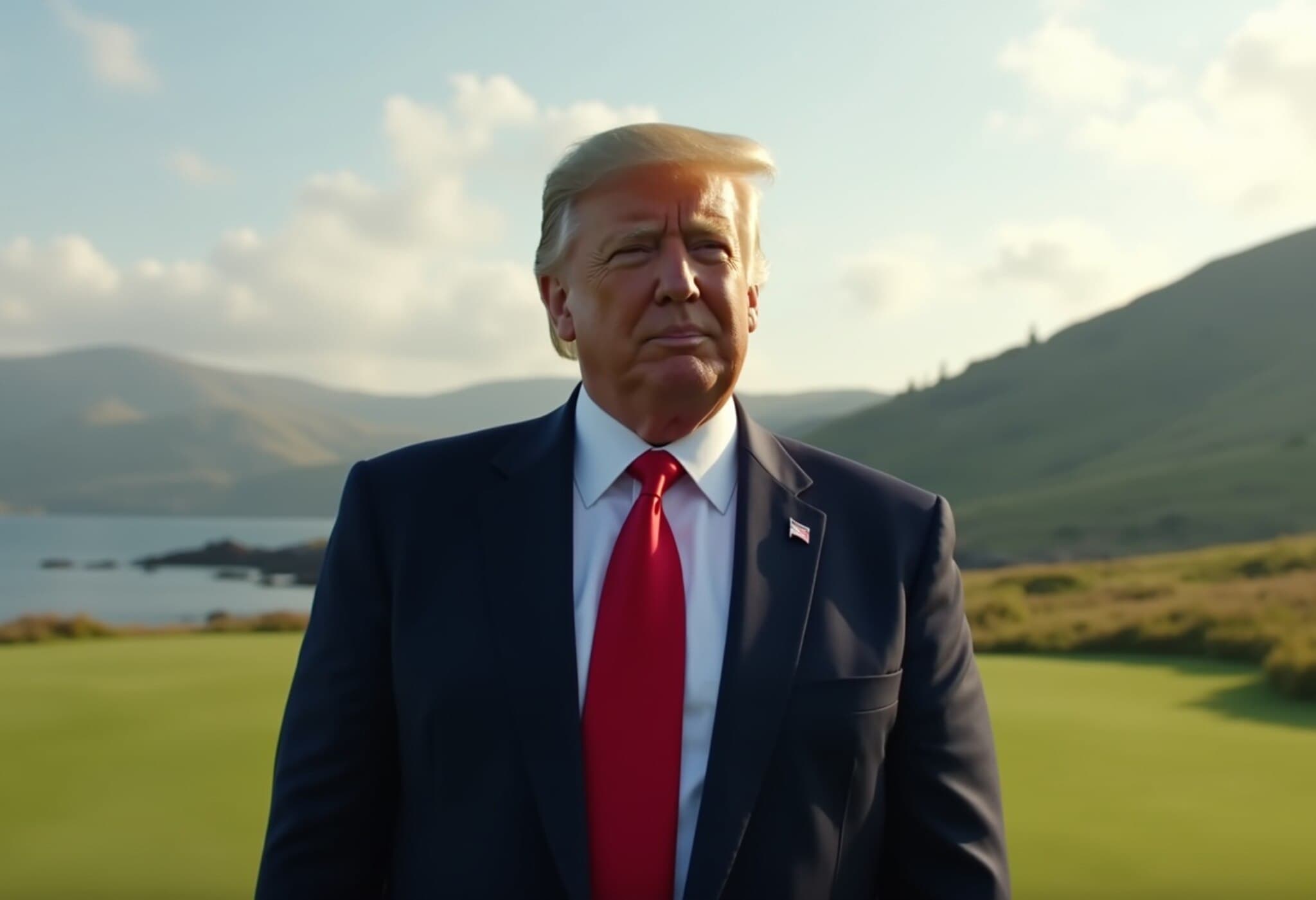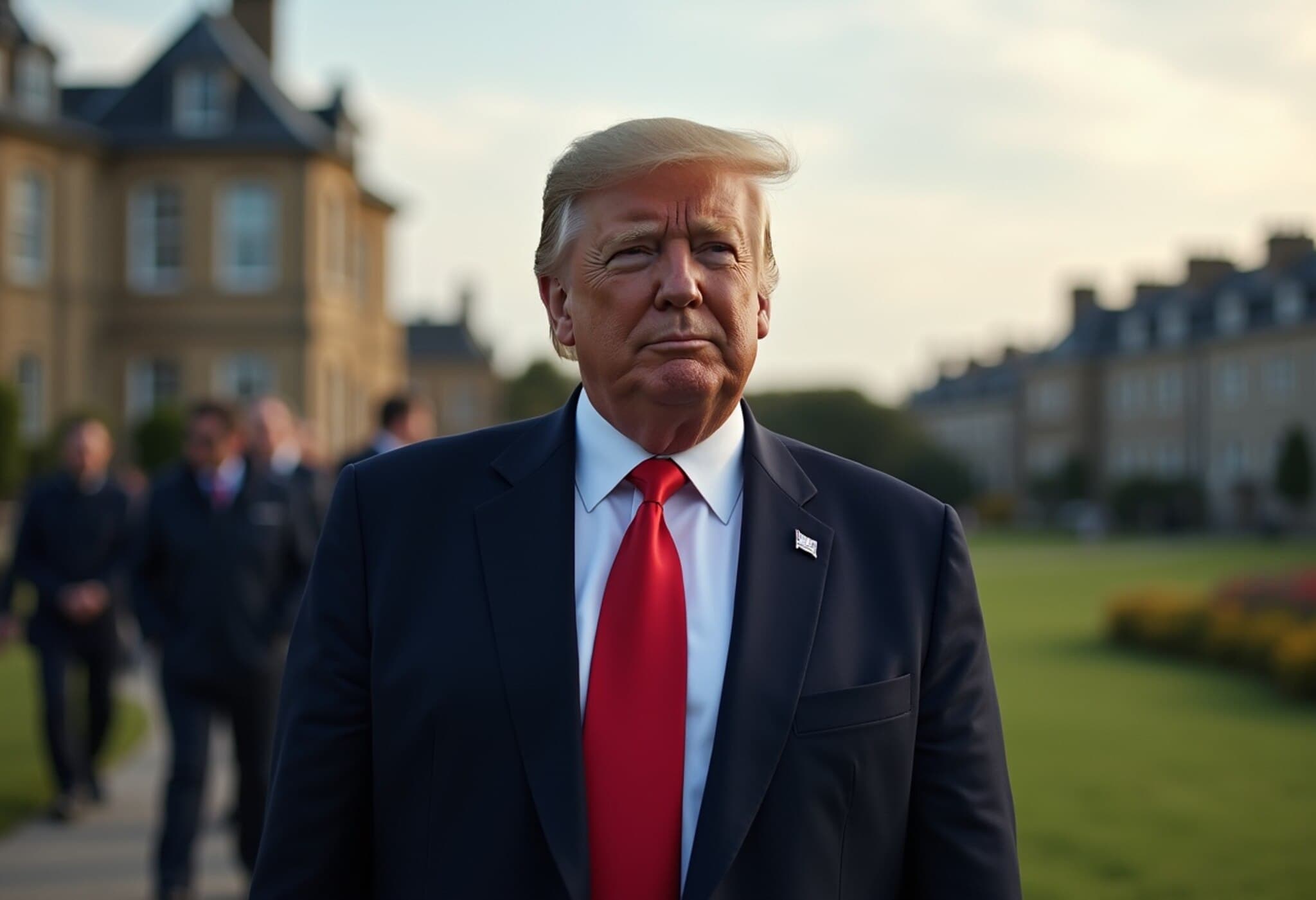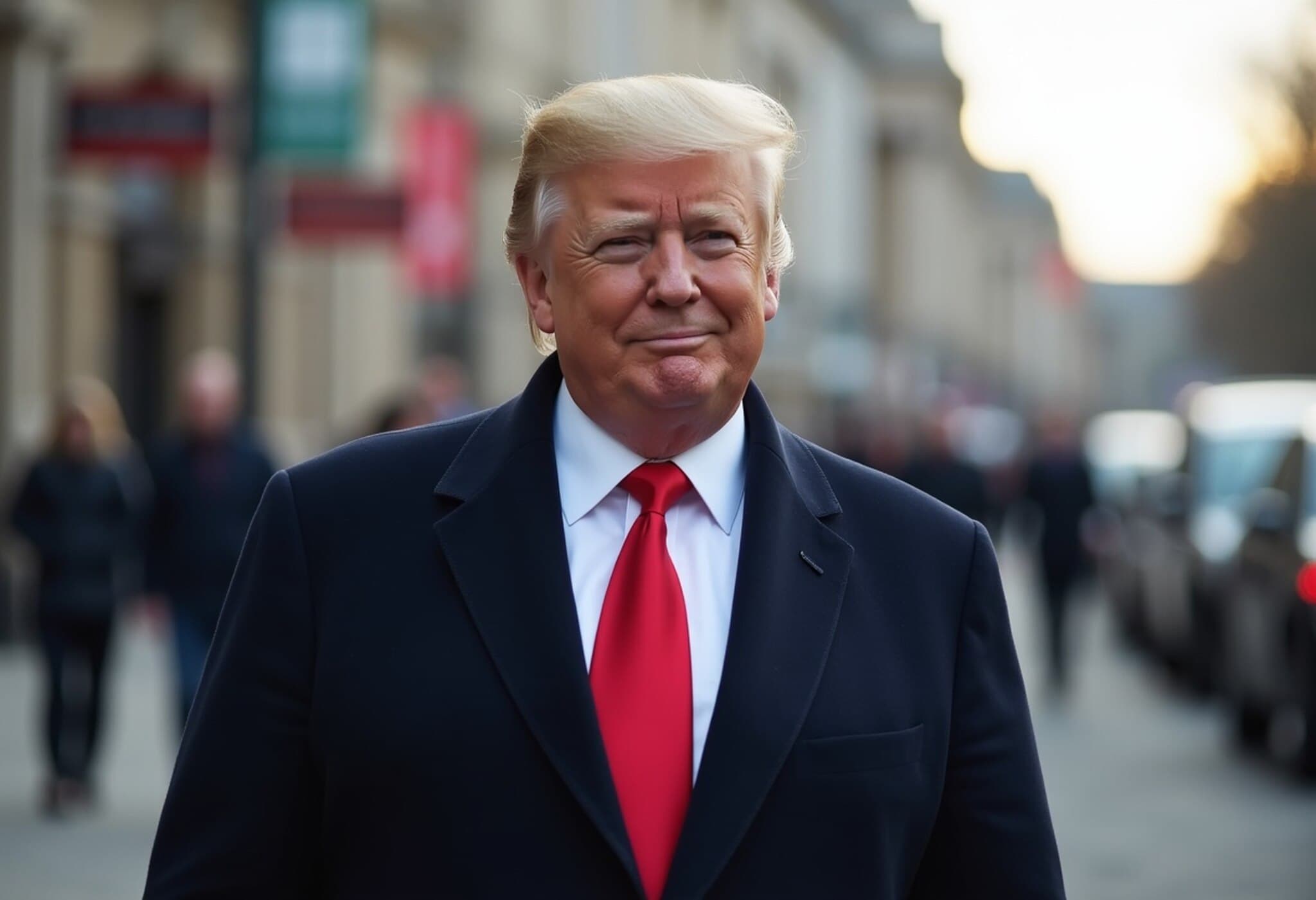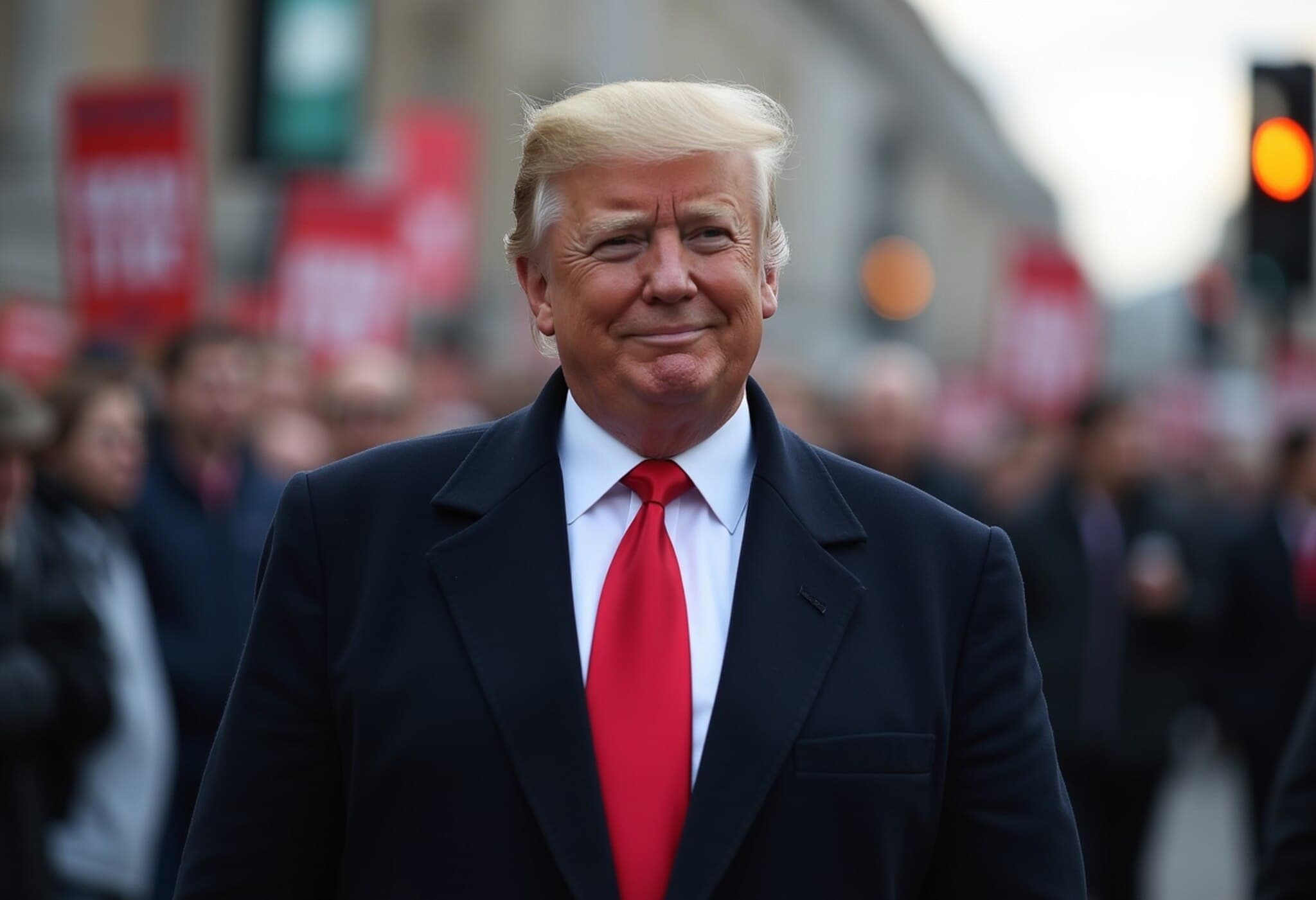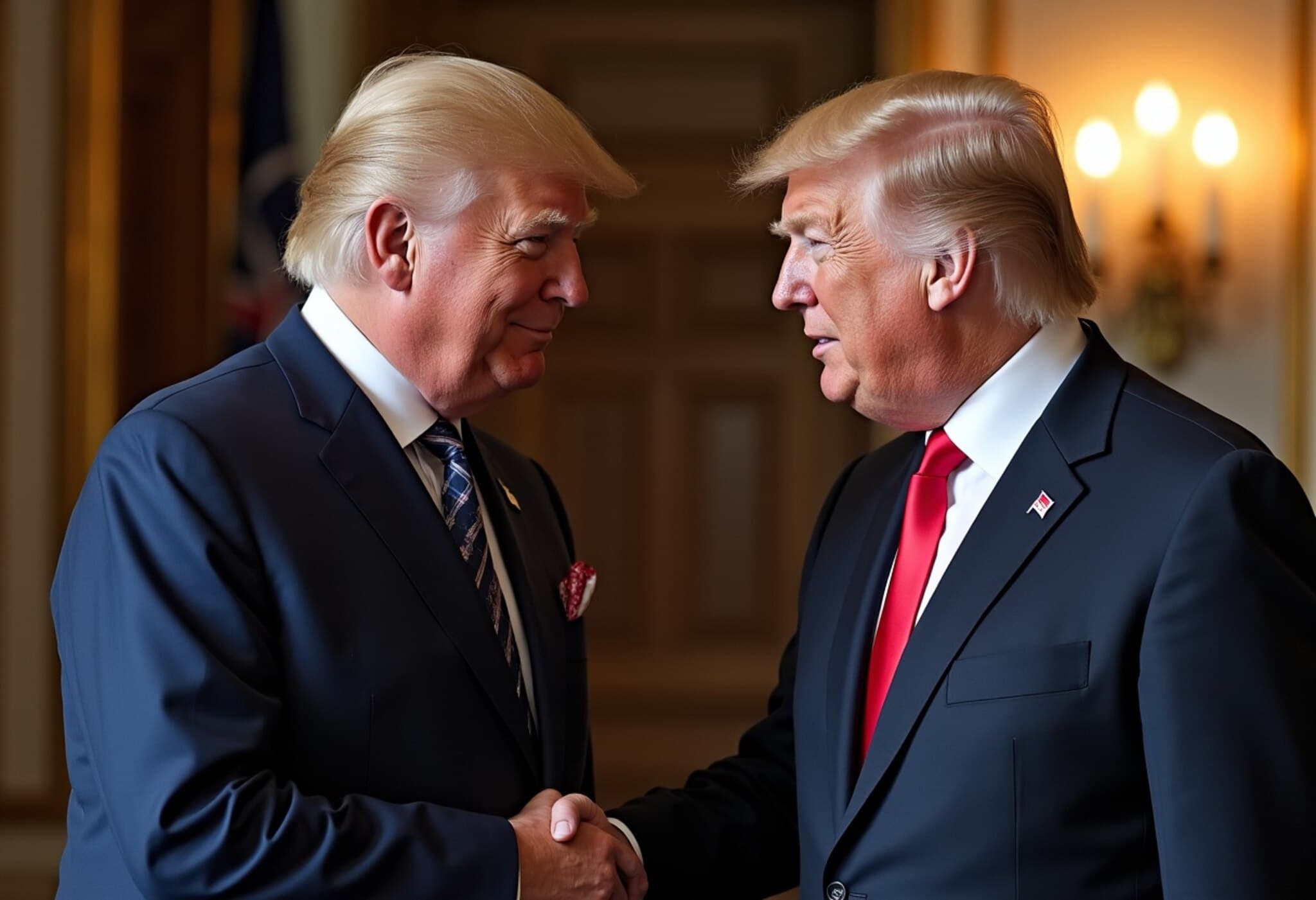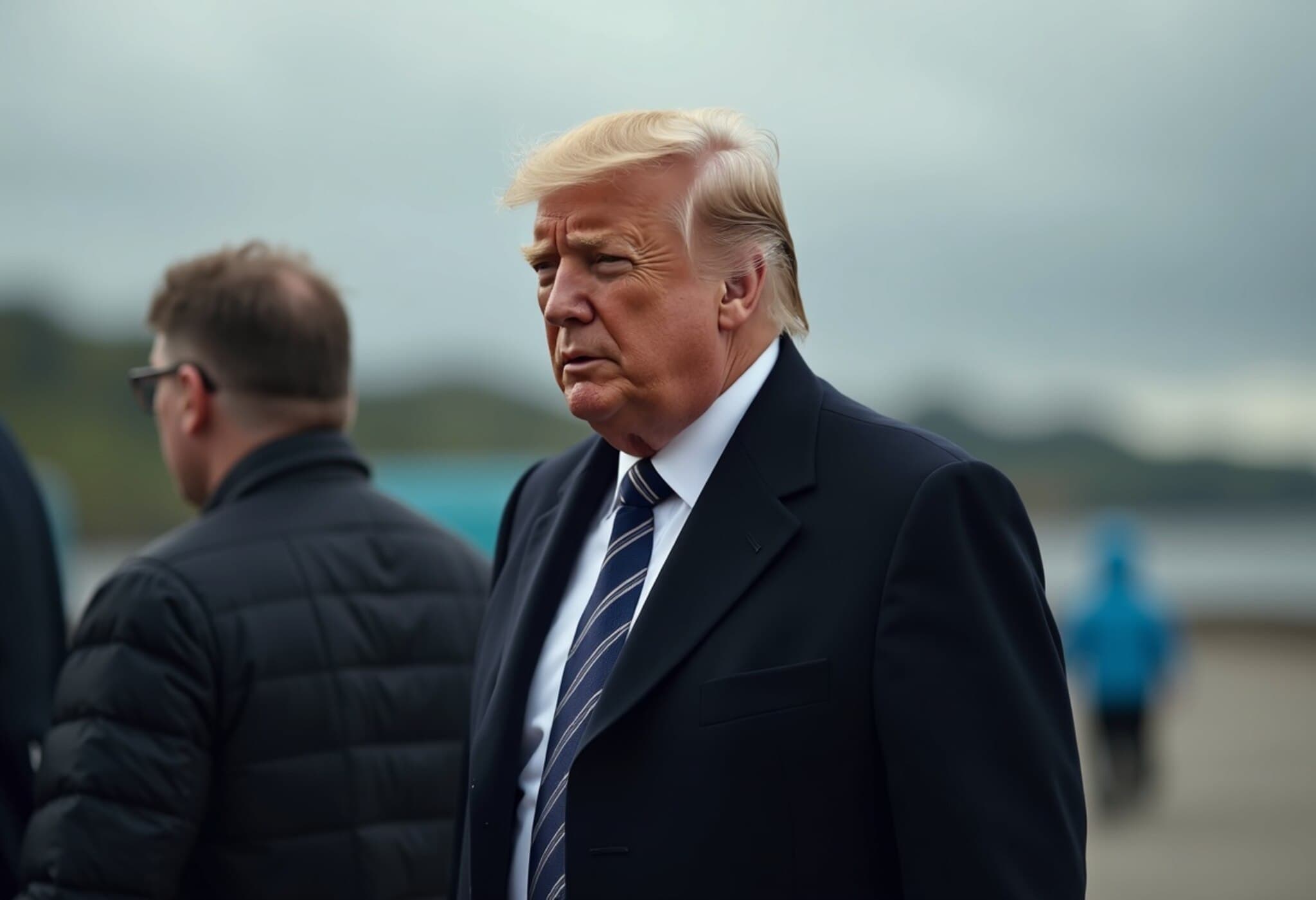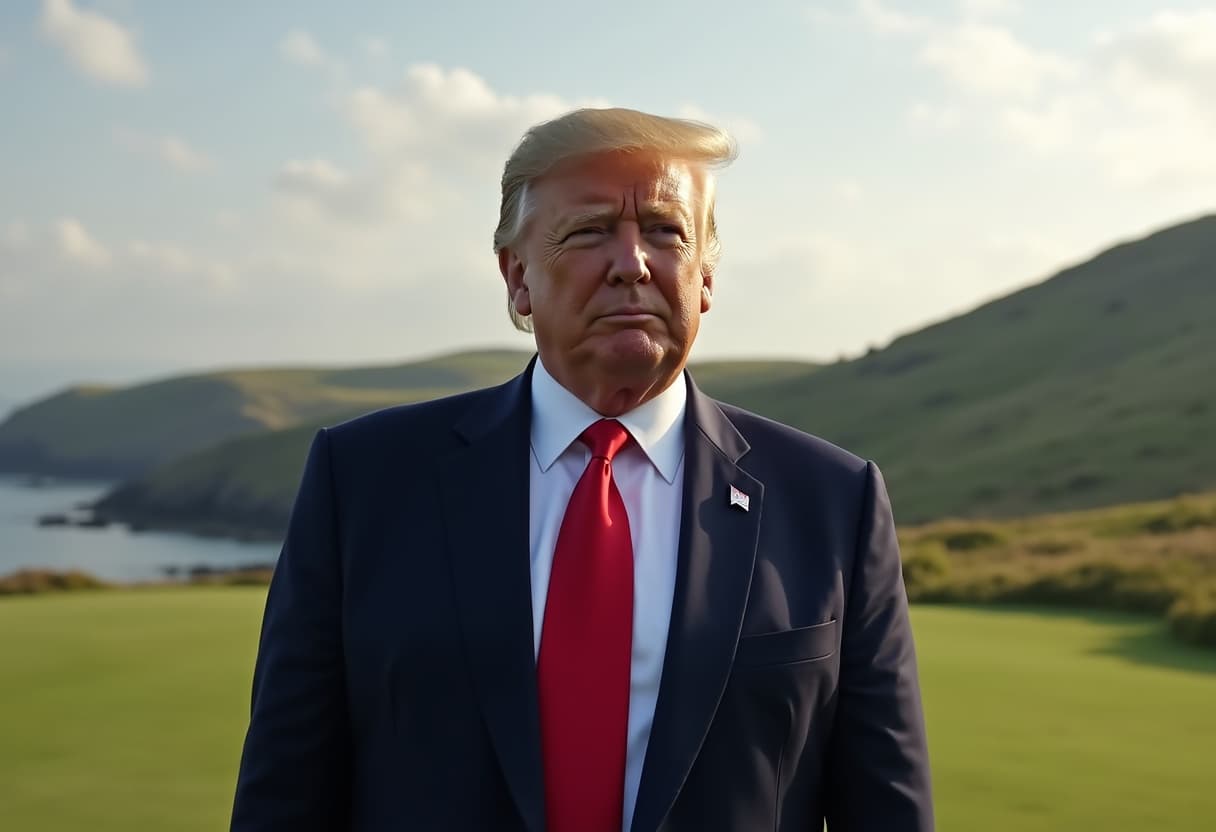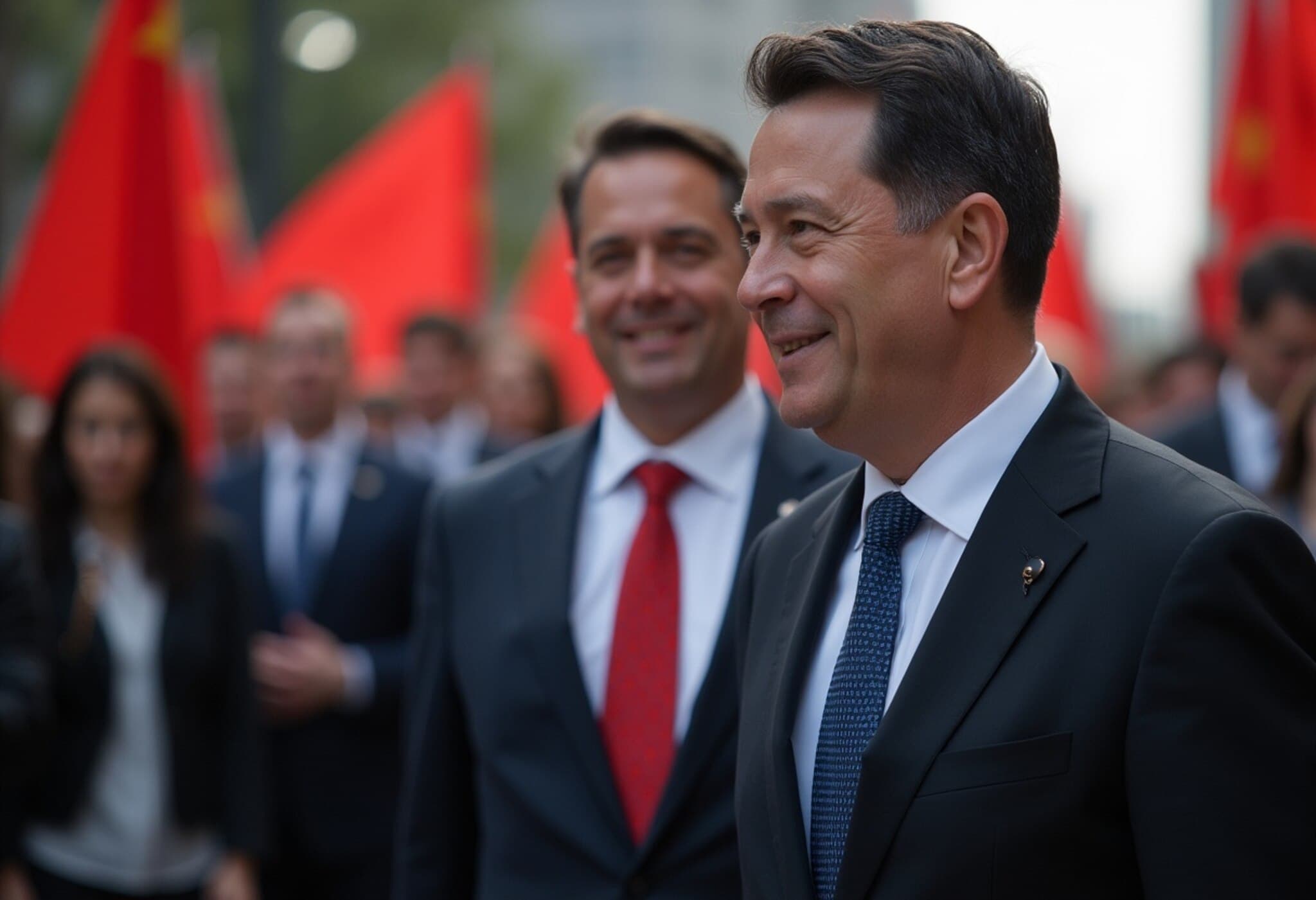Trump Plays Golf as Protests Erupt Across Scotland
On Saturday, July 26, 2025, former President Donald Trump enjoyed a round of golf at his Turnberry golf course nestled on the scenic coast of Scotland, while simultaneously, across the country, hundreds of protesters voiced their opposition to his visit. This dual narrative underscores the complex sentiments surrounding Trump’s presence in the United Kingdom, blending leisure with political dissent.
Golfing on Historic Grounds
Trump was seen accompanied by his son Eric and U.S. Ambassador to Britain Warren Stephens as they played on Turnberry, a historic golf course acquired by the Trump Organization in 2014. Dressed in black with a distinctive white “USA” cap, the president embraced the coastal breeze, maneuvering the greens and fairways with typical golf cart ease. Observers noted he played an initial nine holes, paused for lunch, then returned for another nine, with security personnel tightly managing the surroundings.
Protests Signal Deep Frustration and Defiance
About 160 kilometers away in Edinburgh, the nation’s capital, the atmosphere could not have been more different. Hundreds gathered on cobblestone streets in front of the U.S. Consulate, holding aloft signs that ranged from "Trump Out!" to "No red carpet for dictators." The crowd, a mosaic of activists concerned about climate change, critics of Israel’s actions in Gaza, and pro-Ukraine advocates, loosely united under a banner dubbed the “Stop Trump Coalition.”
Among the demonstrators was 52-year-old June Osbourne, a dual U.S.-British citizen who donned a red cloak and white hood inspired by Margaret Atwood’s The Handmaid’s Tale—a potent visual metaphor conjuring resistance to authoritarianism. Osbourne described Trump as "the worst thing that has happened to the world and the U.S. in decades," reflecting a broader Scottish sentiment that juxtaposes pride in the president’s Scottish heritage with disdain for his politics.
Youth and Community Solidarity Shine Through
Youth participation was particularly striking. Fifteen-year-old Amy White, attending with her parents, summed up the mood: "We don’t negotiate with fascists. We’re united—not divided by religion or politics—but by a shared loathing of Trump." Such testimonials highlight how Trump's visit has acted as a rallying point across generational and social lines.
Political Repercussions and Economic Interests
The protests also brought political grievances to the fore. Speakers lambasted British Prime Minister Keir Starmer for his administration’s recent trade deal with the U.S., criticizing it as excessive concession that undercuts protections through avoiding hefty tariff barriers. Meanwhile, Trump’s visit included plans to meet with Starmer and Ursula von der Leyen, President of the European Commission, signaling ongoing negotiations that could impact transatlantic trade and diplomacy.
Moreover, Trump’s connection to Scotland is not just personal but deeply economic. Alongside Turnberry, the Trump family also owns a golf course near Aberdeen, where they intend to inaugurate a new course next month. Scottish First Minister John Swinney emphasized that public funds would support staging the 2025 Nexo Championship at the Aberdeen course, highlighting golf’s significant role in boosting tourism and economic activity in the region.
Local and International Reactions
On the political forefront, Scottish Parliament member Maggie Chapman voiced her solidarity with the protesters, denouncing Trump and his policies. On the ground, Edinburgh residents like Mark Gorman expressed profound disappointment: "For many Scots, despite his Scottish roots, Trump is a disgrace." This deep divide illustrates the challenges faced by Scotland as it navigates the legacy and ongoing influence of a figure both connected to and alienating for many locals.
Looking Ahead: Trump’s Ambition for Turnberry
Trump remains determined to elevate Turnberry’s status by lobbying for it to host prestigious events like the British Open, which it has not hosted since his company took ownership. Nevertheless, his recent social media posts, including one featuring a misspelling of the course’s town name, reflect ongoing efforts to promote his Scottish ventures alongside his contentious political profile.
Closing Reflections: A Visit That Mirrors Global Polarization
This visit underscores a stark duality: on one hand, a businessman and former leader relishing a personal passion; on the other, a society actively challenging his ideology and influence. Trump’s Scotland trip is a microcosm of wider global tensions where leisure, politics, and public sentiment intersect with profound complexity.
Donald Trump’s visit to Scotland brings more than golf swings and photo ops; it sparkles a spotlight on the cultural and political fault lines his politics evoke internationally. How will these local reactions shape future bilateral relations and trade negotiations? Are athletes, tourists, and politicians prepared to navigate the crossroads of sportsmanship and activism? As Scotland balances economic interests with public sentiment, the unfolding narrative challenges us to rethink the roles of leadership, identity, and resistance on a global stage.

